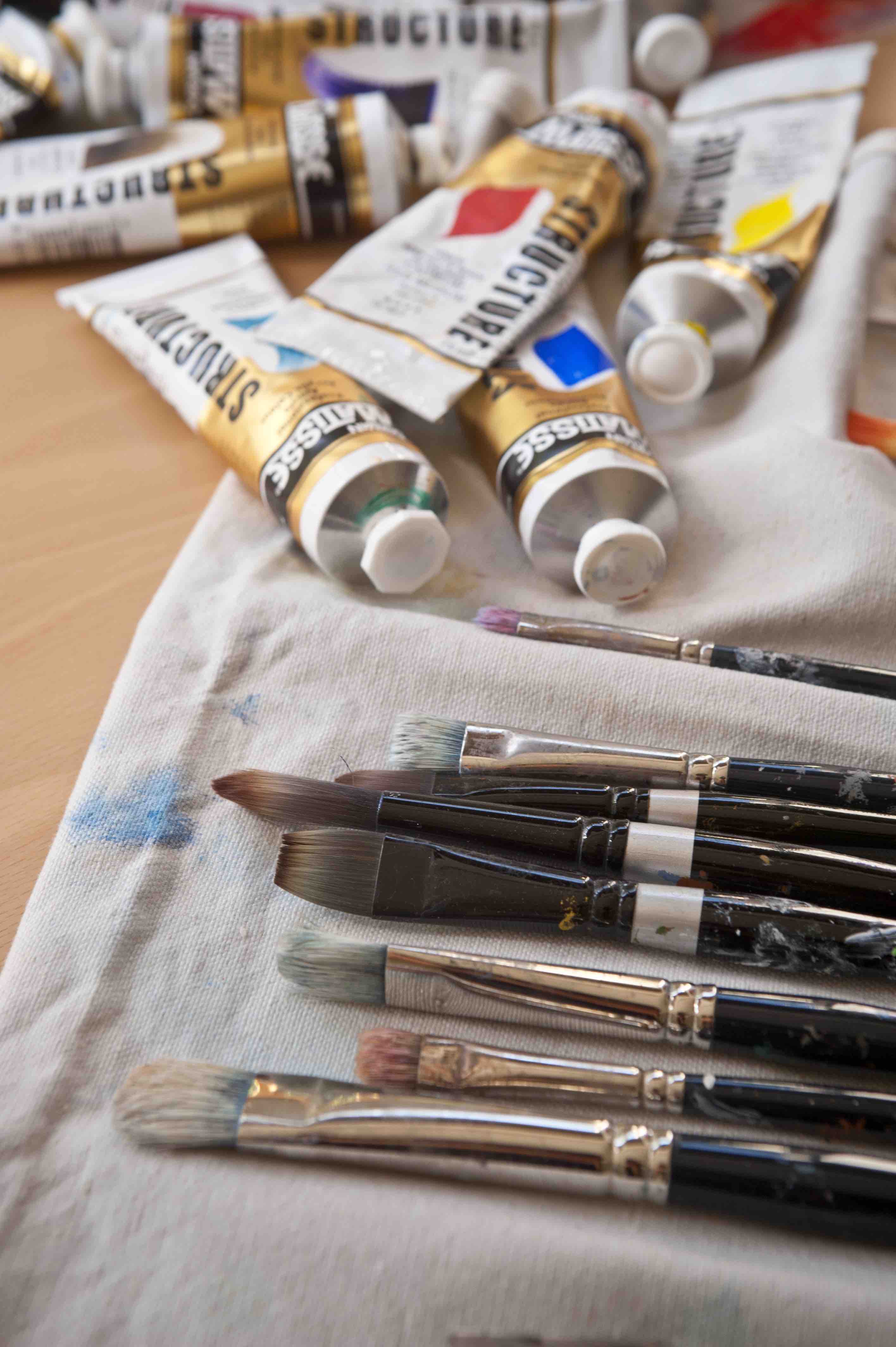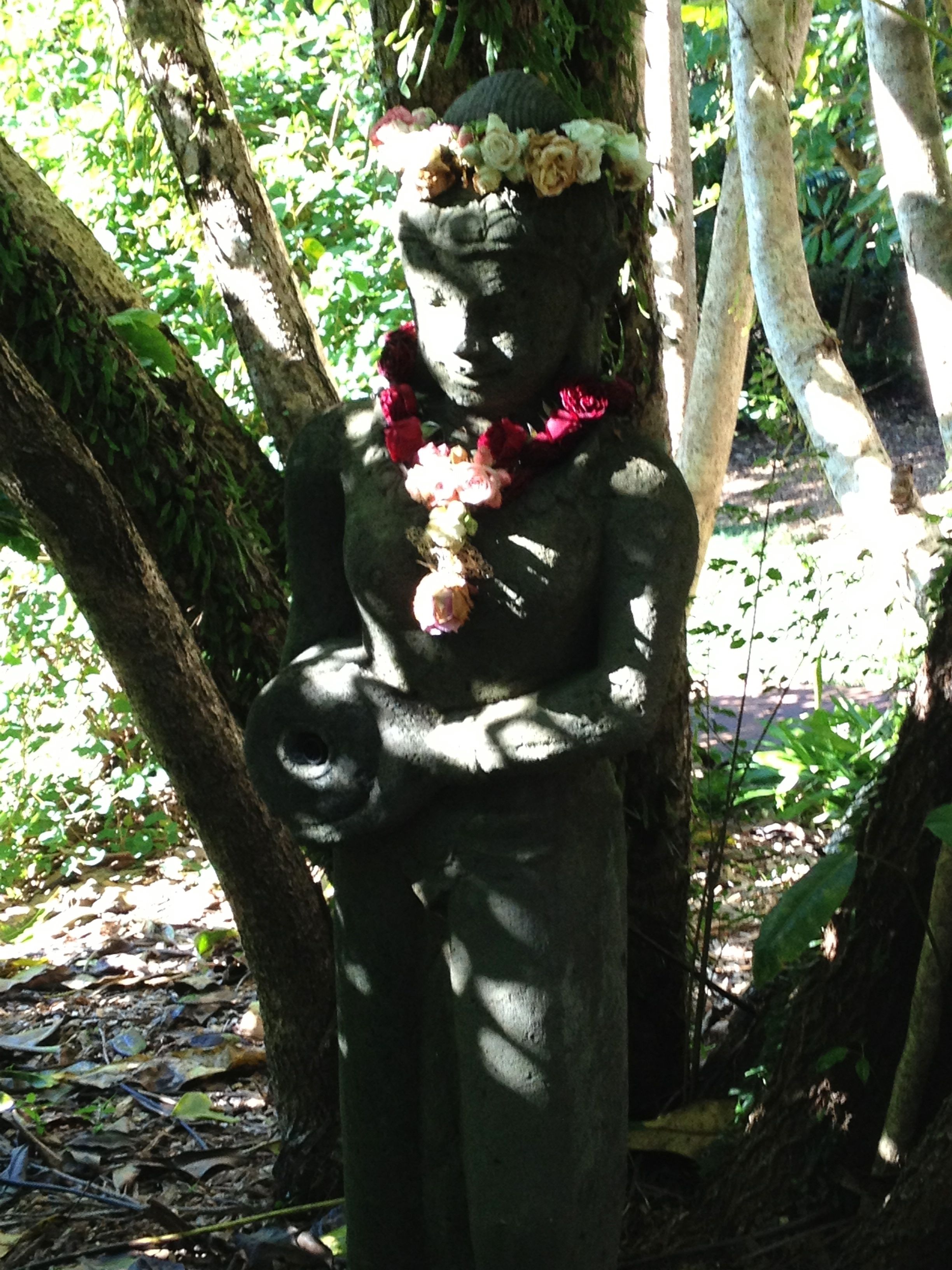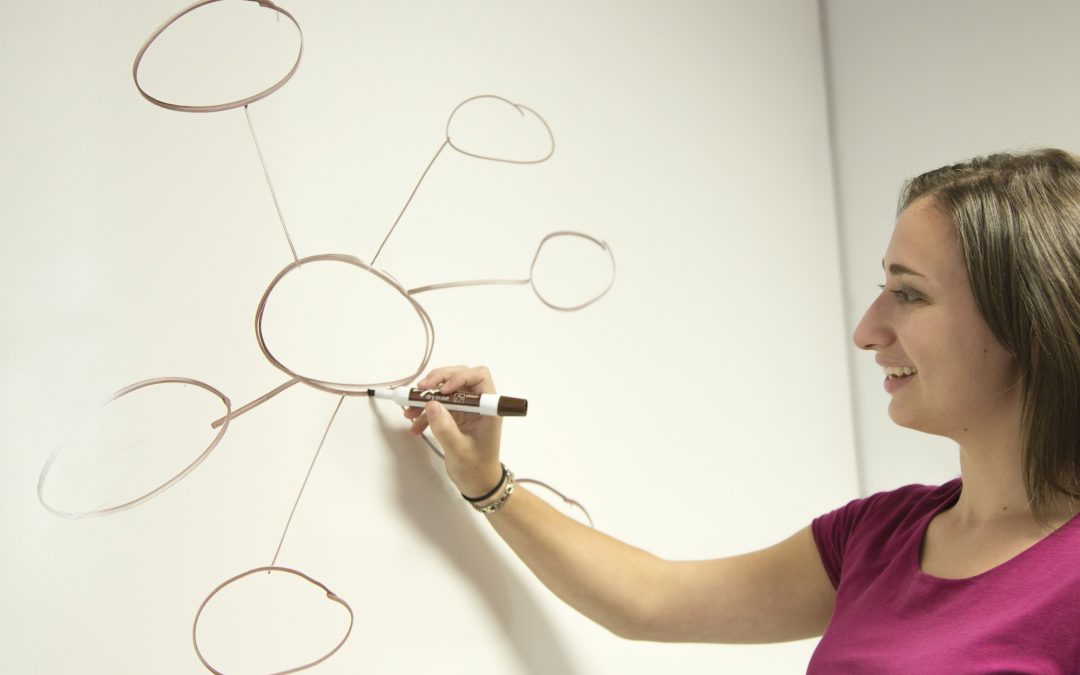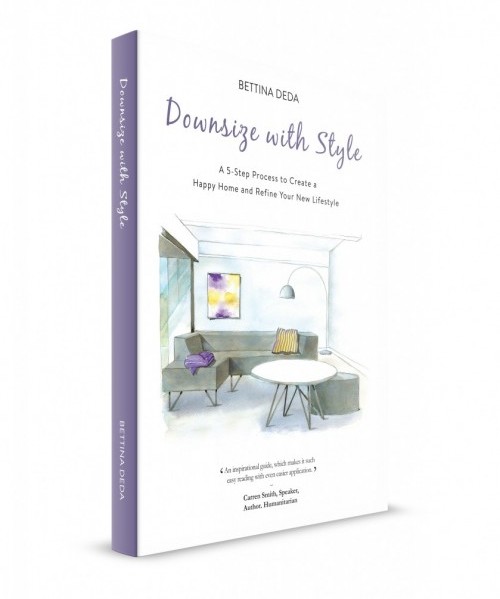Are you stuck in a personal or professional project and looking to find a different way to solve it? Have you experienced that you can’t force yourself to be creative? I experienced it many times. Last year, for example, I found myself staring over an hour at an empty piece of paper during a weekend workshop at the National Art School. Only when I let go of what I intended to do in the first place after the art teacher had given me a different prompt, could I start again – and my drawing emerged miraculously in front of my eyes.
I read about artists who say they don’t know how their work is going to unfold when they start; they keep adding layers of paint and observing what emerges to become the final work. Creativity is a process that unfolds when immersing yourself into a task. As a writer, I experienced the same: when I started my memoir I had a rough idea about what I wanted to write. I started writing bits and pieces of memories that I wanted to include. Over the course of one year, all of a sudden, the puzzle pieces formed an image. With the ongoing feedback and creative input from my writing group I added another layer to my story through including letters to my mother.
To overcome the famous writer’s block I heard from many authors that they leave their desk to do some exercise or physical work; walking the dog, running in the fresh air, gardening, doing the household or any other physical work reliefs the brain from the creative task and lets the mind wander. And often, it is then that the ideas come to us effortlessly. At the end of our walk or repetitive physical job, we resume our creative endeavours refreshed and re-energised.
“Creativity takes courage”, as the famous French painter Henri Matisse put it so well. People who pretend not to be creative or find a myriad of excuses to avoid a creative project often lack courage. They lack the courage to go down a different path, to make detours and to fail if necessary. You need to be willing to approach a task with an open mind, not knowing what the outcome might be. And you need to let go of it when your approach does not work; to be patient – something I often struggle with – and come back another time. It is the beauty of working creatively that you might come up with a genial idea that will open doors to new opportunities.
The Power of Positive Psychology
I recently attended a networking event with Sue Langley, founder of The Langley Group, speaking about positive psychology. According to Sue, positive psychology has gained momentum over the past ten years and influenced social and human sciences. Contrary to traditional psychology, positive psychology aims at moving people towards positive behaviours and habits. The more positive habits we integrate into our daily life, the happier we become, the better we perform, and the more creative we can be.
According to a white paper from The Langley Group, there are five principles that form the basis of positive psychology: Abundance, virtues and strength, positive deviance, flourishing versus languishing, and happiness and wellbeing. On her blog she explains “while positive psychology covers many disciplines and areas, many scholars and practitioners have focused on maximising the benefits of five factors essential to happiness and wellbeing: positive emotions, engagement, meaning, relationships and accomplishment. These positive factors, though not the only beneficial ingredients, can be seen as building blocks or drivers that maximise wellbeing and gear people and human systems toward greater flourishing.”
Establish Routines to Achieve Results
How can we build up more dopamine in our brain and trigger positive behaviour? How can we start our day with a smile on our face, prepared to tackle the challenges that might lie ahead?
In his book The Organised Mind, the American Neuroscientist Daniel J. Levitin explains that establishing routines is one of the most powerful levers to achieve results. If you would like to spark your creativity, I recommend establishing a powerful (morning) routine. My most creative time is between 3 and 7 am. I often wake up and get ideas for tasks I have been trying to solve for a while. I have written the majority of my memoir between 5 and 6 am. In the morning hours, everything seems to come more easily to me than in the afternoons or evenings. However, you should not force yourself to be creative in the morning if you are not a morning person. There are people, who are more productive in the evenings or late at night. Find the time frame that works best for you and make it a priority to tackle your creative projects at that time. And if this is the evening, you might need to give up watching TV. It is a matter of what you make a priority. “We can organise our time, and our minds, to leave time for creativity, for mind-wandering, for each of us to make our own unique contribution in our time here,” Levitin further suggests.
Try one or all of the following five strategies that I use to stimulate my creativity.
1. Engage with art
If you follow my blog you know I love art. I love mingling with artists, curators, and exhibition visitors. As a member of the Art Gallery of New South Wales, I regularly visit the gallery to dive into the realm of creativity. Just the mere act of wandering through the exhibition spaces triggers positive emotions and makes my heart sing. Levitin bemoans the fact that our world is becoming increasingly linear. “It seems we take less time for art. In doing so, we may be missing out on something that is deeply valuable … Artists recontextualise reality and offer visions that were previously invisible. Creativity engages the brain’s daydreaming mode directly and stimulates the free flow and association of ideas, forging links between concepts and neural nodes that might not otherwise be made.” He encourages us to engage with art by attending a painting class or just enjoying artworks as an observer, as it helps us reset our brain, take a break form our everyday life and let the mind wonder and contemplate.

2. Establish systems outside your head
In times of information overload – followed by decision-making overload – it is vital to establish systems in the physical world that help us relieve our brain from the burden of trying to remember everything. Often, the most creative ideas come to me at places where I would not expect them. In order not to forget your flashes of genius you need to capture them somehow. A few years ago I came across a notebook called 3 am. I bought it and placed it on my bedside table. When I wake up with a new idea for something I am pondering about for a while – private or business-related – I jot down my thoughts in this notebook. Working with notes and lists is a clever way to stay organised and in control of our daily tasks and creative ventures.
3. Seize the morning hours
Even if you are more creative in the evenings try and wake up an hour earlier to prepare yourself for the day ahead. You might just want to wake up slowly and go through your daily activities. Think about how you want to feel today and set your positive intention. Get up and seize the opportunity of tranquillity and peacefulness in your home before everyone else wakes up and the morning routine starts. Writing a journal can be a deliberating exercise in the morning. You might have heard of the Morning Pages where you capture all your thoughts – unstructured as they flow out of your brain – for 20 minutes. You empty your mind to start the day with a clear and de-cluttered brain. I started doing this last year and noticed that I often get new ideas for projects I am working on while writing down random stuff. Another method to become happier is writing a gratitude journal. Think about three things every day that you are grateful for and write them down. If you give your brain this task persistently, it will start looking out for those three things during the day. The more grateful you are, the happier you will become.

4. Go for a walk
Walking in fresh air is one of the best creativity boosters. I have heard it many times from other writers and experienced it myself over and over again. When I am stuck with a piece of work or a project in my business, I go for a walk. I trust that I will find a solution – and this is what happens most of the time. Letting your mind wander and wonder – while appreciating the beauty of your nature around you – will offer you a solution to your problem. One of my favourite morning walks is part of a coastal walk passing close to our home on Sydney’s Northern Beaches. It is amazing how 45 minutes in the fresh morning air can influence your mood and make your creative juices flowing.
5. Practise yoga and meditation
I have been practising yoga for over five years and can’t imagine my weekly schedule without it. Apart from building up strength and flexibility yoga has helped me to step out of my comfort zone, become more courageous and creative. Mindful activities, such as meditating, increase the dopamine level in your brain and will help you start your day in a positive mood. I experience this over and over again when I leave the yoga studio in the mornings. I feel calm, positive and prepared to make most out of my day ahead. The permanent practise of detachment and equanimity has influenced my level of happiness. The happier and more content you feel, the better your creative outcome will be.
If you are interested in learning a method to boost your creativity and visualise abstract ideas consider my mood board workshops for professionals and corporate teams.







